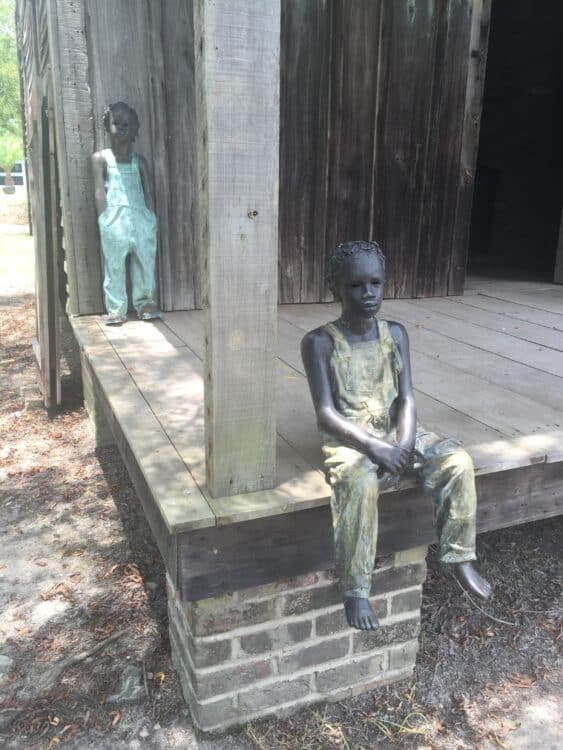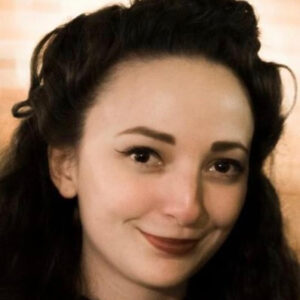How did enslaved children in the nineteenth century US experience and respond to violence?
24 Nov 2025|Aisha Djelid
- Research

In 1937, as a part of President Franklin D. Roosevelt’s New Deal “Alphabet Agencies” to help alleviate the economic crisis, the US government ordered several Works Progress Administration workers to interview formerly enslaved people and their descendants. Over 2,000 interviews were conducted throughout the country where African Americans ruminated on their experiences of slavery. The respondents discussed a range of themes, from what they ate, what they wore, who they interacted with, what labour they carried out, to how they resisted the oppressive regime of slavery. But, perhaps the most interesting aspect of these interviews consistently underappreciated by historians is that most of these respondents experienced slavery uniquely as children rather than as adults.
Ellen Cragin was around nine years old when freedom came to Vicksburg, Mississippi in 1865. Before then, Ellen experienced a particularly brutal and violent life of slavery. Her mother “was a breeder,” and “while she did that weaving, she had children, fast.” This means that Ellen’s enslaver, Tom Polk, pressured her to reproduce as quickly and as often as possible, while also carrying out exploitative labour around the plantation. Ellen also highlighted to her interviewer that making her mother “breed” and work at the loom at the same time “wasn’t nothin” in comparison to the fact that he would also “have children by a n[__]r woman and then have them by her daughter,” explicitly carrying out violently incestuous actions. Whether Ellen was aware of this at the time, and thus exposed to knowledge of sexual violence (or what the historian Wilma King refers to as “prematurely knowing of evil things”), or whether she found this out later in life is a historical silence we can only speculate about. What is clearer, however, is Ellen’s response to the mistreatment of her mother.
“One day,” recalled Ellen, “Tom Polk hit my mother” because she did not pick enough cotton. “I don’t know how many times he hit her. I was small. I heard some one say ‘They got Clarisay Down, down there!’ I went to see. And they had her down.” More horrifically, Ellen’s mother was pregnant at the time, likely as a result of the reproductive pressures from Polk: “she was stout, and they had dug a hole in the ground to put her belly in.” This particular detail stayed with Ellen long into adulthood: “I never did get over that. I am an old woman, but Tom Polk better not come round me now even.” After this harrowing beating, Ellen went out and “got a gun [… and] I said to myself, ‘If you whip my mother today, I am goin’ to shoot you.’” In the end, her elder sister took the gun and put it by the front door. It is unclear whether this was in a warning to anyone that tried to enter, or her sister’s attempts to keep Ellen away from it and from endangering her own life.
What is remarkable about Ellen’s story is that she was only around nine-years-old, if not younger, when this happened. Witnessing violence against her mother clearly left behind an immense amount of trauma and psychological turmoil for Ellen, but it does also open up a series of questions about enslaved childhood in the nineteenth century South. Did enslaved children have agency, and did they express this differently to adults? Ellen, in a moment of anger and desire to protect her mother, was able to locate and take a gun – a weapon she would have known was dangerous – and intended to use it against her enslaver. However, it is likely she was not totally aware of the consequences for herself, her family, and wider community if she had fired the gun. If we classify this act of violence as an adult form of resistance, does this mean that Ellen was not a child, or did not experience a childhood? Did this foray into violence represent her entrance into the world of adulthood? Were enslaved children’s childhoods “stolen”? Or, by arguing that enslaved children did not experience a childhood, are we imposing our own modern-day conceptions of childhood and ideas about innocence on the past? Finally, how representative is Ellen’s story? Some of the earliest memories formerly enslaved people retained were typically ones where they witnessed or experienced violence for the first time. The strong, emotional response that Ellen had in response to seeing a loved one hurt was not uncommon, and was in fact a lesson in surviving, navigating, and refusing slavery.
Category: Research
Author

Aisha
Djelid
Dr Aisha Djelid is the Broadbent Career Development Fellow in American History at the Rothermere American Institute and a Junior Research Fellow at St Edmund Hall.